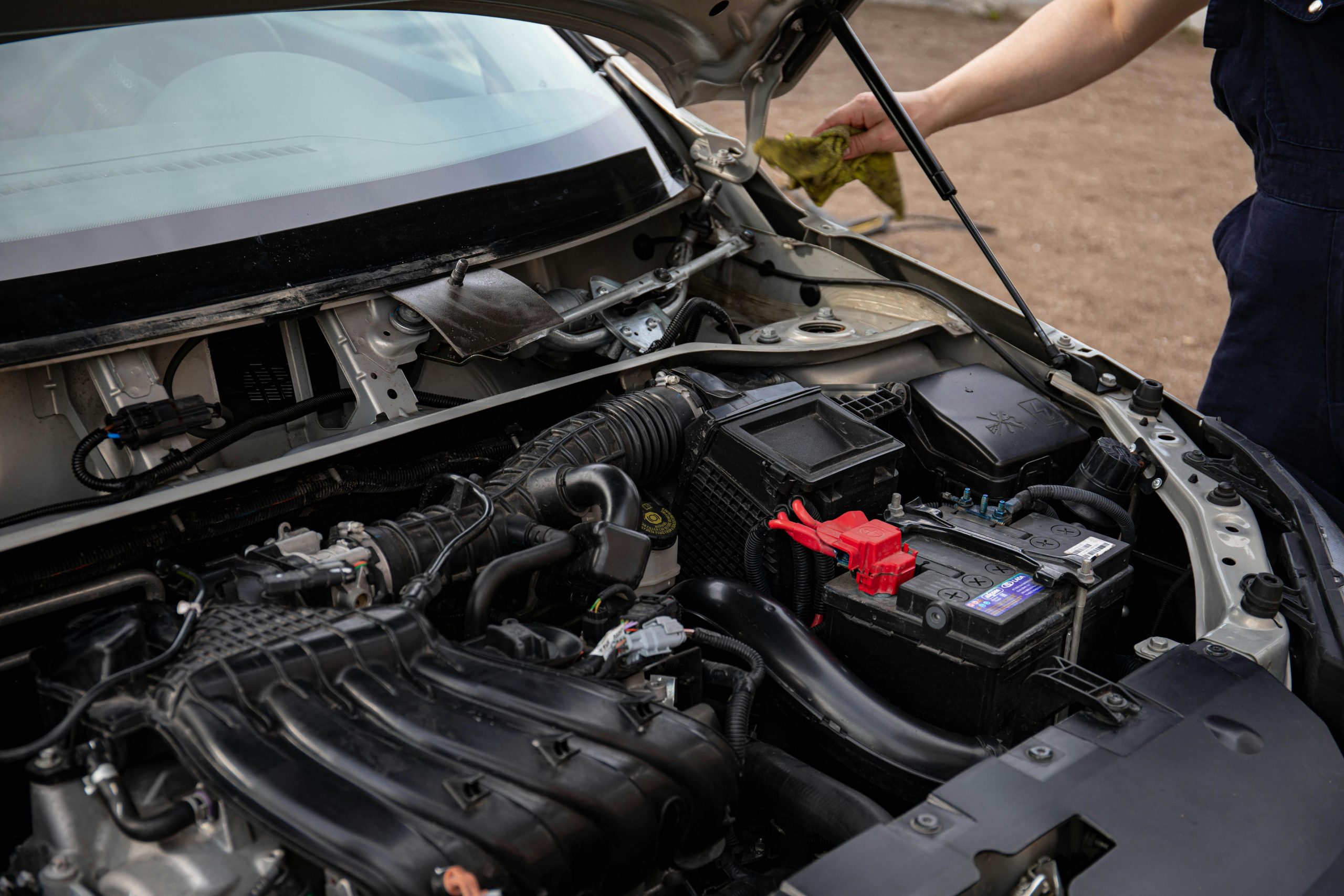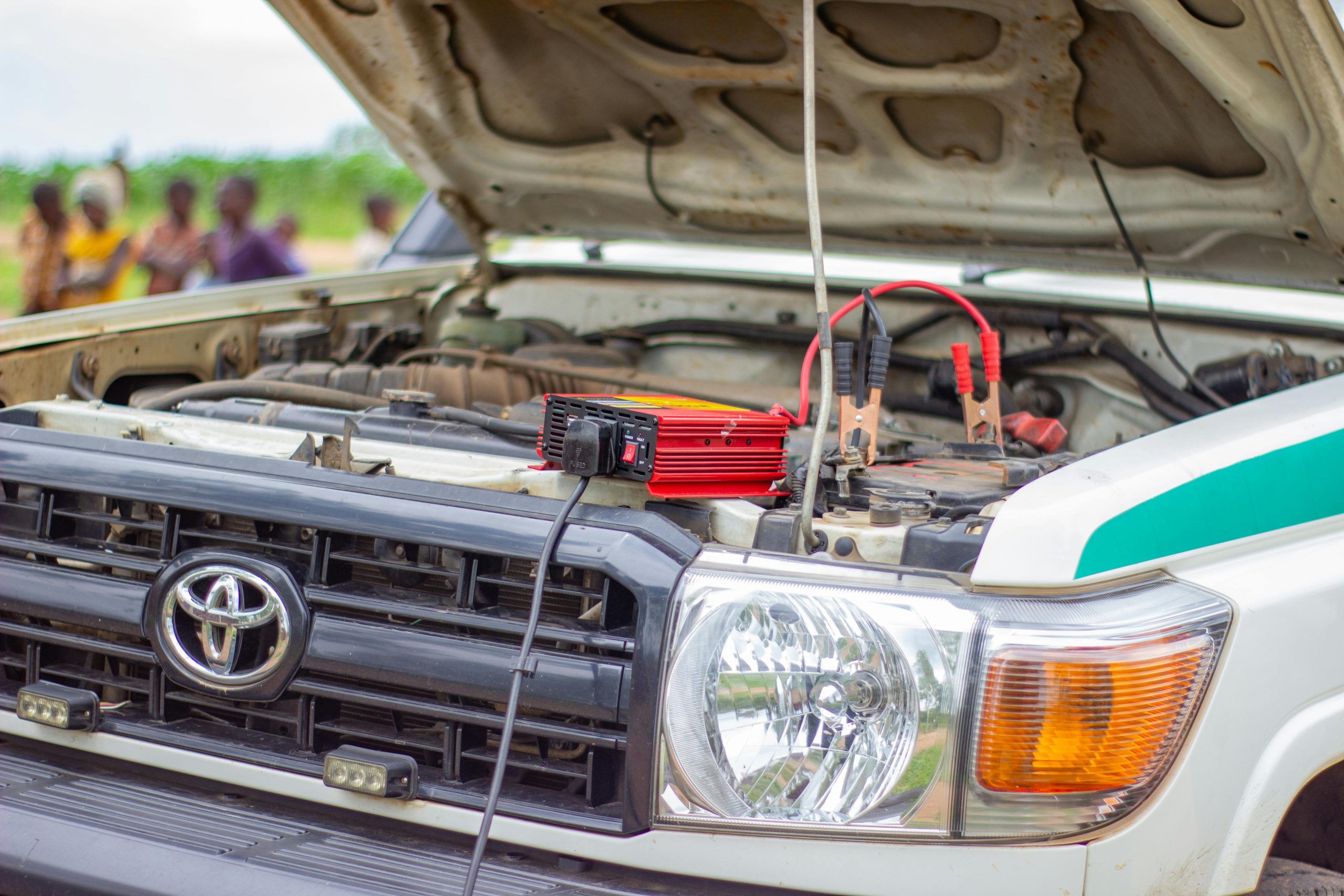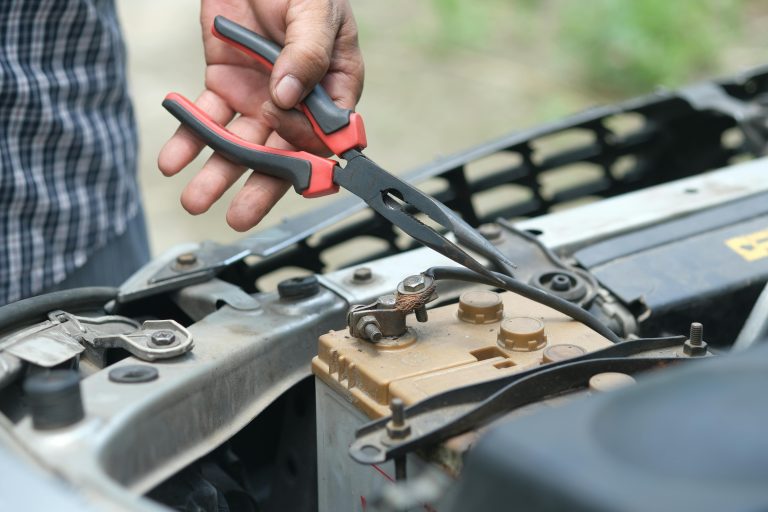
Few parts of your car are as important as the battery. It powers everything from the ignition system to the radio, air conditioning, and headlights. But just like tyres and brakes, car batteries don’t last forever. Many drivers ask the same question: how long does a car battery last?
On average, most car batteries last between 3 to 5 years, though this depends on several factors such as driving habits, climate, and maintenance. Knowing the signs of a failing battery and how to look after it can help you avoid being stranded with a car that won’t start.
In this guide, we’ll cover:
- The average lifespan of a car battery.
- Signs that your battery may need replacing.
- Factors that shorten or extend battery life.
- Tips to make your battery last longer.
- When and how to replace your car battery.
How Long Does a Car Battery Last on Average?

For most drivers, a car battery will last 3 to 5 years before it needs replacement. Some may last longer if well maintained, while others fail sooner due to harsh conditions.
Here’s a breakdown:
- 3 years or less: Battery life is shortened if exposed to extreme heat, short trips, or lack of use.
- 3 to 5 years: Typical range for most Australian drivers in normal conditions.
- 5+ years: Possible if the car is well maintained, used regularly, and the electrical system is in good condition.
Even if a battery seems fine after 5 years, it’s a good idea to test it regularly to avoid sudden failure.
Signs Your Car Battery Is Failing
It’s not always obvious when a car battery is on its last legs. Because batteries gradually weaken over time, many drivers don’t realise there’s a problem until their car refuses to start. Fortunately, there are some clear warning signs you can look out for before the battery completely dies.
Common signs of a failing battery include:
- Slow engine cranking – If your car takes longer than usual to turn over when you start it, the battery may not have enough charge to deliver the necessary power.
- Dim headlights or interior lights – Lights that appear dull or flicker when the engine is off often indicate a weak battery.
- Electrical problems – Features such as power windows, the radio, central locking, or dashboard lights may behave erratically if the battery is struggling.
- Battery warning light – A glowing battery icon on your dashboard shouldn’t be ignored, as it could point to a failing battery or an issue with the charging system.
- Swollen or leaking battery case – Visible bulging, corrosion around the terminals, or fluid leaks are strong indicators that the battery is overheating or has reached the end of its lifespan.
- Frequent jump-starts – If you’ve had to jump-start your car more than once in a short time, the battery is most likely nearing failure.
Beyond these symptoms, you may also notice unusual smells, such as a rotten egg odour coming from the battery. This can be caused by leaking battery acid and should be treated as a serious issue.
If you spot any of these warning signs, it’s best to book in for a battery test at your local service centre or auto electrician. They can check whether the issue is simply a weak battery that needs recharging, or if it’s time for a full replacement. Acting early can save you from being stranded at the worst possible moment.
What Factors Affect Car Battery Life?
The life of a car battery isn’t fixed. Several factors can shorten or extend its lifespan.
1. Climate
- Hot weather: High temperatures can evaporate battery fluid and corrode internal parts.
- Cold weather: Low temperatures slow chemical reactions inside the battery, making it harder to start the car.
2. Driving Habits
- Frequent short trips don’t give the alternator enough time to recharge the battery.
- Long drives help maintain battery health.
3. Electrical Load
- Using accessories like phone chargers, stereos, and dash cameras while the engine is off drains the battery.
- Modern cars with advanced electronics require more power.
4. Car Maintenance
- Loose or corroded battery terminals reduce efficiency.
- A failing alternator or charging system puts extra strain on the battery.
5. Age of the Battery
- Like any part, batteries naturally wear out with time.
- After 3 years, it’s best to have the battery tested annually.
How to Make Your Car Battery Last Longer

The good news is that with proper care, you can extend the lifespan of your car battery and avoid premature replacements. While most car batteries in Australia last between three and five years, good habits and regular maintenance can help you get the most value out of yours.
Here are some practical ways to make your battery last longer:
- Drive regularly – Your car battery recharges when the engine is running. If you only use your vehicle occasionally, the battery may not get enough charge to stay healthy. Even a short drive once or twice a week can help keep it topped up.
- Limit short trips – Frequent short drives don’t give your alternator enough time to fully recharge the battery. Where possible, combine errands into one longer trip. This reduces strain on the battery and ensures it reaches an adequate charge.
- Turn off electronics when parked – Leaving your headlights, radio, dash cams, or phone chargers running while the engine is off can drain the battery quickly. Always double-check that everything is switched off before locking up your car.
- Check battery terminals – Over time, corrosion can build up around the terminals, making it harder for the battery to deliver power efficiently. You can clean the terminals using a simple mixture of baking soda and water with a stiff brush. Just remember to wear gloves and eye protection.
- Keep the battery secure – If the battery isn’t properly fastened, constant vibrations can cause internal damage. During regular services, make sure the hold-down bracket is tight and the battery is sitting firmly in place.
- Protect against extreme temperatures – In hotter parts of Australia, high temperatures can speed up battery fluid evaporation, while cold weather can reduce starting power. Where possible, park in a garage or shaded area to reduce stress on the battery.
- Service your car regularly – A well-maintained charging system is just as important as the battery itself. Faulty alternators, loose drive belts, or electrical issues can all shorten battery life. Having your vehicle serviced on schedule ensures these problems are caught early.
By following these practices, many drivers are able to push their battery closer to the five-year mark, and in some cases even longer. Consistent care not only saves money but also helps avoid the inconvenience of an unexpected breakdown.
How to Test Your Car Battery
You don’t always need a mechanic to check if your battery is healthy. Here are some common methods:
- Headlight Test: Turn on headlights before starting the car. If they dim noticeably, the battery may be weak.
- Multimeter: A fully charged battery should read around 12.6 volts when the car is off.
- Professional Battery Test: Most auto shops and service centres can perform a quick check.
What to Do if Your Car Battery Dies
A dead battery can be frustrating, but there are solutions:
- Jump-Start the Car
- Use jumper cables and another car, or a portable jump starter.
- Once the car starts, let it run for at least 20 minutes to recharge the battery.
- Replace the Battery
- If the battery keeps going flat, replacement is the best option.
- Check the Charging System
- Sometimes the problem isn’t the battery but the alternator or wiring.
How Often Should You Replace a Car Battery?
Even if your battery hasn’t failed yet, most experts recommend replacement every 4 to 5 years. This prevents unexpected breakdowns.
If your car battery is more than 3 years old, have it tested once a year. That way, you’ll know if it’s losing strength before it leaves you stranded.
Common Questions About Car Battery Life
1. How long does a car battery last without driving?
If a car isn’t driven, the battery may go flat within 2 to 4 weeks. A trickle charger can help maintain charge during long storage periods.
2. Can a car battery last 10 years?
While rare, some batteries in ideal conditions may last up to 7–10 years. However, most fail much earlier.
3. Why does my car battery keep dying overnight?
This could be due to:
- Interior lights or accessories left on.
- Faulty wiring or parasitic drain.
- A weak or old battery that no longer holds charge.
How to Replace a Car Battery Safely
Replacing a car battery is straightforward if done carefully.
Tools you’ll need:
- Spanner or socket set.
- Gloves and safety glasses.
- New car battery.
Steps:
- Turn off the engine and remove the key.
- Disconnect the negative terminal first, then the positive.
- Remove the old battery and place it on a safe surface.
- Install the new battery in the same position.
- Connect the positive terminal first, then the negative.
- Ensure the battery is secured firmly.
Tip: Always recycle your old battery properly at an auto parts store or recycling centre.
Conclusion
So, how long does a car battery last? The simple answer is 3 to 5 years, depending on conditions, driving habits, and maintenance. While some may last longer, it’s always wise to test your battery regularly once it’s older than three years.
By paying attention to warning signs, maintaining your car’s electrical system, and driving smartly, you can extend your battery’s life and avoid the hassle of unexpected breakdowns.
Your car battery may not last forever, but with good care, it will serve you reliably until it’s time for a replacement.
